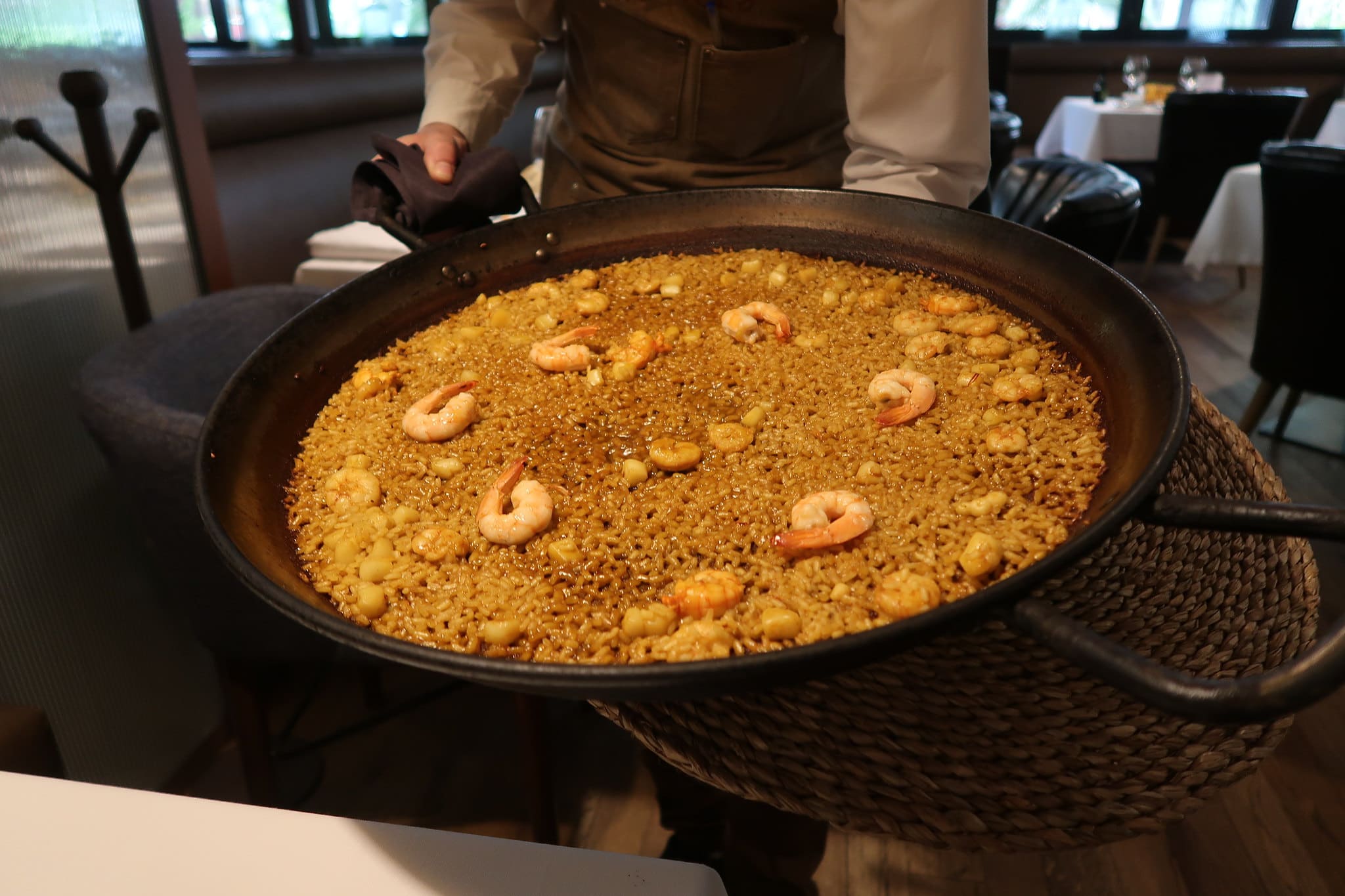
Origins & Legends of Spain’s Famous Rice Dish.
Paella is often considered one of Spain’s national dishes (although a local might say tortilla because it’s an everyday dish). The paella is for family gatherings, weekend festivities, and special occasions. Learn the paella history, its humble beginnings, and the legends that go with the famous dish.
Paella History
What is Paella?
The name paella, or la paella, comes from the Spanish word “paellera” referring to the flat, round pan with two handles. It is interesting to note that “patella” in Latin means pan.
Paella is the union of two cultures – Romans for the pan and Arabs who brought the rice. In 718, the Moors arrived at the port of Valencia, one of the largest ports in the Mediterranean, and introduced rice to the country. The Spanish word for rice, arroz, directly comes from the Arabic word “al-ruzz”. Today, Valencia remains one of the most important rice-producing areas in Spain.
Farmers Food
The history of paella can be rooted around the 1850s with farmers in the Valencia regions. The men would put together their lunch on the fields using rice plus whatever was around the countryside, such as tomatoes, onions, beans, and snails. On special occasions, meat was added such as rabbit, duck, and chicken. For extra special occasions, saffron enhanced the color and flavor of the rice.
The dish was cooked on a paellera and simmered over a wood fire. As opposed to the pan as a serving dish the way it is today, traditionally paella was eaten straight from the pan with each person using his own wooden spoon.
The popularity of the dish spread across the country and adapted according to each region. Seafood variations were seen along the coast, including Valencia itself. However, a true Paella Valenciana has no seafood at all. It sticks to tradition with chicken, rabbit, snails, green beans, and white beans.
Legend of Love
Of course, there are also other legends that go along with this highly beloved dish. The first is a playful one about a man who created the rice for his fiancé and said it was “para ella”, or for her. Interestingly in Spain, women do much of the cooking at home but with it comes to paella, men generally make it – much like grilling and barbecue culture.
Legend of Leftovers
Then there’s the legend of the leftovers. It has been told that the servants of Moorish kings created rice dishes out of leftovers from royal banquets. The food was made in large pots that could be taken home. And that is said to the be roots and origins of paella.
Whatever the true history, paella is about social dining – feasting with family and friends in the outdoors, in restaurants, and at home.
Sign up for my newsletter on the sidebar for blog updates and my travel insider tips! And, check out my vlogs on YouTube!


